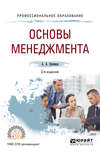Read the book: «Children's Rights: A Book of Nursery Logic»
PREFATORY NOTE
I am indebted to the Editors of Scribner's Magazine, the Cosmopolitan, and Babyhood, for permission to reprint the three essays which have appeared in their pages. The others are published for the first time.
It may be well to ward off the full seriousness of my title "Nursery Logic" by saying that a certain informality in all of these papers arises from the fact that they were originally talks given before members of societies interested in the training of children.
Three of them—"Children's Stories," "How Shall we Govern our Children," and "The Magic of 'Together'"—have been written for this book by my sister, Miss Nora Smith.
K.D.W.
NEW YORK, August, 1892.
THE RIGHTS OF THE CHILD
"Give me liberty, or give me death!"
The subject of Children's Rights does not provoke much sentimentalism in this country, where, as somebody says, the present problem of the children is the painless extinction of their elders. I interviewed the man who washes my windows, the other morning, with the purpose of getting at the level of his mind in the matter.
"Dennis," I said, as he was polishing the glass, "I am writing an article on the 'Rights of Children.' What do you think about it?" Dennis carried his forefinger to his head in search of an idea, for he is not accustomed to having his intelligence so violently assaulted, and after a moment's puzzled thought he said, "What do I think about it, mum? Why, I think we'd ought to give 'em to 'em. But Lor', mum, if we don't, they take 'em, so what's the odds?" And as he left the room I thought he looked pained that I should spin words and squander ink on such a topic.
The French dressmaker was my next victim. As she fitted the collar of an effete civilization on my nineteenth century neck, I put the same question I had given to Dennis.
"The rights of the child, madame?" she asked, her scissors poised in air.
"Yes, the rights of the child."
"Is it of the American child, madame?"
"Yes," said I nervously, "of the American child."
"Mon Dieu! he has them!"
This may well lead us to consider rights as opposed to privileges. A multitude of privileges, or rather indulgences, can exist with a total disregard of the child's rights. You remember the man who said he could do without necessities if you would give him luxuries enough. The child might say, "I will forego all my privileges, if you will only give me my rights: a little less sentiment, please,—more justice!" There are women who live in perfect puddles of maternal love, who yet seem incapable of justice; generous to a fault, perhaps, but seldom just.
Who owns the child? If the parent owns him,—mind, body, and soul, we must adopt one line of argument; if, as a human being, he owns himself, we must adopt another. In my thought the parent is simply a divinely appointed guardian, who acts for his child until he attains what we call the age of discretion,—that highly uncertain period which arrives very late in life with some persons, and not at all with others.
The rights of the parent being almost unlimited, it is a very delicate matter to decide just when and where they infringe upon the rights of the child. There is no standard; the child is the creature of circumstances.
The mother can clothe him in Jaeger wool from head to foot, or keep him in low neck, short sleeves and low stockings, because she thinks it pretty; she can feed him exclusively on raw beef, or on vegetables, or on cereals; she can give him milk to drink, or let him sip his father's beer and wine; put him to bed at sundown, or keep him up till midnight; teach him the catechism and the thirty-nine articles, or tell him there is no God; she can cram him with facts before he has any appetite or power of assimilation, or she can make a fool of him. She can dose him with old-school remedies, with new-school remedies, or she can let him die without remedies because she doesn't believe in the reality of disease. She is quite willing to legislate for his stomach, his mind, his soul, her teachableness, it goes without saying, being generally in inverse proportion to her knowledge; for the arrogance of science is humility compared with the pride of ignorance.
In these matters the child has no rights. The only safeguard is the fact that if parents are absolutely brutal, society steps in, removes the untrustworthy guardian, and appoints another. But society does nothing, can do nothing, with the parent who injures the child's soul, breaks his will, makes him grow up a liar or a coward, or murders his faith. It is not very long since we decided that when a parent brutally abused his child, it could be taken from him and made the ward of the state; the Society for the Prevention of Cruelty to Children is of later date than the Society for the Prevention of Cruelty to Animals. At a distance of a century and a half we can hardly estimate how powerful a blow Rousseau struck for the rights of the child in his educational romance, "Emile." It was a sort of gospel in its day. Rousseau once arrested and exiled, his book burned by the executioner (a few years before he would have been burned with it), his ideas naturally became a craze. Many of the reforms for which he passionately pleaded are so much a part of our modern thought that we do not realize the fact that in those days of routine, pedantry and slavish worship of authority, they were the daring dreams of an enthusiast, the seeming impossible prophecy of a new era. Aristocratic mothers were converts to his theories, and began nursing their children as he commanded them. Great lords began to learn handicrafts; physical exercise came into vogue; everything that Emile did, other people wanted to do.
With all Rousseau's vagaries, oddities, misconceptions, posings, he rescued the individuality of the child and made a tremendous plea for a more natural, a more human education. He succeeded in making people listen where Rabelais and Montaigne had failed; and he inspired other teachers, notably Pestalozzi and Froebel, who knit up his ragged seams of theory, and translated his dreams into possibilities.
Rousseau vindicated to man the right of "Being." Pestalozzi said "Grow!" Froebel, the greatest of the three, cried "Live! you give bread to men, but I give men to themselves!"
The parent whose sole answer to criticism or remonstrance is "I have a right to do what I like with my own child!" is the only impossible parent. His moral integument is too thick to be pierced with any shaft however keen. To him we can only say as Jacques did to Orlando, "God be with you; let's meet as little as we can."
But most of us dare not take this ground. We may not philosophize or formulate, we may not live up to our theories, but we feel in greater or less degree the responsibility of calling a human being hither, and the necessity of guarding and guiding, in one way or another, that which owes its being to us.
We should all agree, if put to the vote, that a child has a right to be well born. That was a trenchant speech of Henry Ward Beecher's on the subject of being "born again;" that if he could be born right the first time he'd take his chances on the second. "Hereditary rank," says Washington Irving, "may be a snare and a delusion, but hereditary virtue is a patent of innate nobility which far outshines the blazonry of heraldry."
Over the unborn our power is almost that of God, and our responsibility, like His toward us; as we acquit ourselves toward them, so let Him deal with us.
Why should we be astonished at the warped, cold, unhappy, suspicious natures we see about us, when we reflect upon the number of unwished-for, unwelcomed children in the world;—children who at best were never loved until they were seen and known, and were often grudged their being from the moment they began to be. I wonder if sometimes a starved, crippled, agonized human body and soul does not cry out, "Why, O man, O woman—why, being what I am, have you suffered me to be?"
Physiologists and psychologists agree that the influences affecting the child begin before birth. At what hour they begin, how far they can be controlled, how far directed and modified, modern science is not assured; but I imagine those months of preparation were given for other reasons than that the cradle and the basket and the wardrobe might be ready;—those long months of supreme patience, when the life-germ is growing from unconscious to conscious being, and when a host of mysterious influences and impulses are being carried silently from mother to child. And if "beauty born of murmuring sound shall pass into" its "face," how much more subtly shall the grave strength of peace, the sunshine of hope and sweet content, thrill the delicate chords of being, and warm the tender seedling into richer life.
Mrs. Stoddard speaks of that sacred passion, maternal love, that "like an orange-tree, buds and blossoms and bears at once." When a true woman puts her finger for the first time into the tiny hand of her baby, and feels that helpless clutch which tightens her very heart-strings, she is born again with the new-born child.
A mother has a sacred claim on the world; even if that claim rest solely on the fact of her motherhood, and not, alas, on any other. Her life may be a cipher, but when the child comes, God writes a figure before it, and gives it value.
Once the child is born, one of his inalienable rights, which we too often deny him, is the right to his childhood.
If we could only keep from untwisting the morning-glory, only be willing to let the sunshine do it! Dickens said real children went out with powder and top-boots; and yet the children of Dickens's time were simple buds compared with the full-blown miracles of conventionality and erudition we raise nowadays.
There is no substitute for a genuine, free, serene, healthy, bread-and-butter childhood. A fine manhood or womanhood can be built on no other foundation; and yet our American homes are so often filled with hurry and worry, our manner of living is so keyed to concert pitch, our plan of existence so complicated, that we drag the babies along in our wake, and force them to our artificial standards, forgetting that "sweet flowers are slow, and weeds make haste."
If we must, or fancy that we must, lead this false, too feverish life, let us at least spare them! By keeping them forever on tiptoe we are in danger of producing an army of conventional little prigs, who know much more than they should about matters which are profitless even to their elders.
In the matter of clothing, we sacrifice children continually to the "Moloch of maternal vanity," as if the demon of dress did not demand our attention, sap our energy, and thwart our activities soon enough at best.
And the right kind of children, before they are spoiled by fine feathers, do detest being "dressed up" beyond a certain point.
A tiny maid of my acquaintance has an elaborate Parisian gown, which is fastened on the side from top to bottom in some mysterious fashion, by a multitude of tiny buttons and cords. It fits the dear little mouse like a glove, and terminates in a collar which is an instrument of torture to a person whose patience has not been developed from year to year by similar trials. The getting of it on is anguish, and as to the getting of it off, I heard her moan to her nurse the other night, as she wriggled her curly head through the too-small exit, "Oh I only God knows how I hate gettin' peeled out o' this dress!"
The spectacle of a small boy whom I meet sometimes in the horse-cars, under the wing of his predestinate idiot of a mother, wrings my very soul. Silk hat, ruffled shirt, silver-buckled shoes, kid gloves, cane, velvet suit, with one two-inch pocket which is an insult to his sex,—how I pity the pathetic little caricature! Not a spot has he to locate a top, or a marble, or a nail, or a string, or a knife, or a cooky, or a nut; but as a bloodless substitute for these necessities of existence, he has a toy watch (that will not go) and an embroidered handkerchief with cologne on it.
As to keeping children too clean for any mortal use, I suppose nothing is more disastrous. The divine right to be gloriously dirty a large portion of the time, when dirt is a necessary consequence of direct, useful, friendly contact with all sorts of interesting, helpful things, is too clear to be denied.
The children who have to think of their clothes before playing with the dogs, digging in the sand, helping the stableman, working in the shed, building a bridge, or weeding the garden, never get half their legitimate enjoyment out of life. And unhappy fate, do not many of us have to bring up children without a vestige of a dog, or a sand heap, or a stable, or a shed, or a brook, or a garden! Conceive, if you can, a more difficult problem than giving a child his rights in a city flat. You may say that neither do we get ours: but bad as we are, we are always good enough to wish for our children the joys we miss ourselves.
Thrice happy is the country child, or the one who can spend a part of his young life among living things, near to Nature's heart How blessed is the little toddling thing who can lie flat in the sunshine and drink in the beauty of the "green things growing," who can live among the other little animals, his brothers and sisters in feathers and fur; who can put his hand in that of dear mother Nature, and learn his first baby lessons without any meddlesome middleman; who is cradled in sweet sounds "from early morn to dewy eve," lulled to his morning nap by hum of crickets and bees, and to his night's slumber by the sighing of the wind, the plash of waves, or the ripple of a river. He is a part of the "shining web of creation," learning to spell out the universe letter by letter as he grows sweetly, serenely, into a knowledge of its laws.
I have a good deal of sympathy for the little people during their first eight or ten years, when they are just beginning to learn life's lessons, and when the laws which govern them must often seem so strange and unjust. It is not an occasion for a big burning sympathy, perhaps, but for a tender little one, with a half smile in it, as we think of what we were, and "what in young clothes we hoped to be, and of how many things have come across;" for childhood is an eternal promise which no man ever keeps.
The child has a right to a place of his own, to things of his own, to surroundings which have some relation to his size, his desires, and his capabilities.
How should we like to live, half the time, in a place where the piano was twelve feet tall, the door knobs at an impossible height, and the mantel shelf in the sky; where every mortal thing was out of reach except a collection of highly interesting objects on dressing-tables and bureaus, guarded, however, by giants and giantesses, three times as large and powerful as ourselves, forever saying, "mustn't touch;" and if we did touch we should be spanked, and have no other method of revenge save to spank back symbolically on the inoffensive persons of our dolls?
Things in general are so disproportionate to the child's stature, so far from his organs of prehension, so much above his horizontal line of vision, so much ampler than his immediate surroundings, that there is, between him and all these big things, a gap to be filled only by a microcosm of playthings which give him his first object-lessons. In proof of which let him see a lady richly dressed, he hardly notices her; let him see a doll in similar attire, he will be ravished with ecstasy. As if to show that it was the disproportion of the sizes which unfitted him to notice the lady, the larger he grows the bigger he wants his toys, till, when his wish reaches to life-sizes, good-by to the trumpery, and onward with realities.1
My little nephew was prowling about my sitting-room during the absence of his nurse. I was busy writing, and when he took up a delicate pearl opera-glass, I stopped his investigations with the time-honored, "No, no, dear, that's for grown-up people."
"Hasn't it got any little-boy end?" he asked wistfully.
That "little-boy end" to things is sometimes just what we fail to give, even when we think we are straining every nerve to surround the child with pleasures. For children really want to do the very same things that we want to do, and yet have constantly to be thwarted for their own good. They would like to share all our pleasures; keep the same hours, eat the same food; but they are met on every side with the seemingly impertinent piece of dogmatism, "It isn't good for little boys," or "It isn't nice for little girls."
Robert Louis Stevenson shows, in his "Child's Garden of Verses," that he is one of the very few people who remember and appreciate this phase of childhood. Could anything be more deliciously real than these verses?
"In winter I get up at night,
And dress by yellow candle light:
In summer, quite the other way,
I have to go to bed by day;
I have to go to bed and see
The birds still hopping on the tree,
And hear the grown-up people's feet
Still going past me on the street.
And does it not seem hard to you,
That when the sky is clear and blue,
And I should like so much to play,
I have to go to bed by day?"
Mr. Hopkinson Smith has written a witty little monograph on this relation of parents and children. I am glad to say, too, that it is addressed to fathers,—that "left wing" of the family guard, which generally manages to retreat during any active engagement, leaving the command to the inferior officer. This "left wing" is imposing on all full-dress parades, but when there is any fighting to be done it retires rapidly to the rear, and only wheels into line when the smoke of the conflict has passed out of the atmosphere.
"Open your heart and your arms wide for your daughters," he says, "and keep them wide open; don't leave all that to their mothers. An intimacy will grow with the years which will fit them for another man's arms and heart when they exchange yours for his. Make a chum of your boy,—hail-fellow-well-met, a comrade. Get down to the level of his boyhood, and bring him gradually up to the level of your manhood. Don't look at him from the second story window of your fatherly superiority and example. Go into the front yard and play ball with him. When he gets into scrapes, don't thrash him as your father did you. Put your arm around his neck, and say you know it is pretty bad, but that he can count on you to help him out, and that you will, every single time, and that if he had let you know earlier, it would have been all the easier."
Again, the child has a right to more justice in his discipline than we are generally wise and patient enough to give him. He is by and by to come in contact with a world where cause and effect follow each other inexorably. He has a right to be taught, and to be governed by the laws under which he must afterwards live; but in too many cases parents interfere so mischievously and unnecessarily between causes and effects that the child's mind does not, cannot, perceive the logic of things as it should. We might write a pathetic remonstrance against the Decline and Fall of Domestic Authority. There is food for thought, and perhaps for fear, in the subject; but the facts are obvious, and their inevitableness must strike any thoughtful observer of the times. "The old educational regime was akin to the social systems with which it was contemporaneous; and similarly, in the reverse of these characteristics, our modern modes of culture correspond to our more liberal religious and political institutions."
It is the age of independent criticism. The child problem is merely one phase of the universal problem that confronts society. It seems likely that the rod of reason will have to replace the rod of birch. Parental authority never used to be called into question; neither was the catechism, nor the Bible, nor the minister. How should parents hope to escape the universal interrogation point leveled at everything else? In these days of free speech it is hopeless to suppose that even infants can be muzzled. We revel in our republican virtues; let us accept the vices of those virtues as philosophically as possible.
A lady has been advertising in a New York paper for a German governess "to mind a little girl three years old." The lady's English is doubtless defective, but the fate of the governess is thereby indicated with much greater candor than is usual.
The mother who is most apt to infringe on the rights of her child (of course with the best intentions) is the "firm" person, afflicted with the "lust of dominion." There is no elasticity in her firmness to prevent it from degenerating into obstinacy. It is not the firmness of the tree that bends without breaking, but the firmness of a certain long-eared animal whose force of character has impressed itself on the common mind and become proverbial.
Jean Paul says if "Pas trop gouverner" is the best rule in politics, it is equally true of discipline.
But if the child is unhappy who has none of his rights respected, equally wretched is the little despot who has more than his own rights, who has never been taught to respect the rights of others, and whose only conception of the universe is that of an absolute monarchy in which he is sole ruler.
"Children rarely love those who spoil them, and never trust them. Their keen young sense detects the false note in the character and draws its own conclusions, which are generally very just."
The very best theoretical statement of a wise disciplinary method that I know is Herbert Spencer's. "Let the history of your domestic rule typify, in little, the history of our political rule; at the outset, autocratic control, where control is really needful; by and by an incipient constitutionalism, in which the liberty of the subject gains some express recognition; successive extensions of this liberty of the subject; gradually ending in parental abdication."
We must not expect children to be too good; not any better than we ourselves, for example; no, nor even as good. Beware of hothouse virtue. "Already most people recognize the detrimental results of intellectual precocity; but there remains to be recognized the truth that there is a moral precocity which is also detrimental. Our higher moral faculties, like our higher intellectual ones, are comparatively complex. By consequence, they are both comparatively late in their evolution. And with the one as with the other, a very early activity produced by stimulation will be at the expense of the future character."
In these matters the child has a right to expect examples. He lives in the senses; he can only learn through object lessons, can only pass from the concrete example of goodness to a vision of abstract perfection.
"O'er wayward childhood wouldst thou hold firm rule.
And sun thee in the light of happy faces?
Love, Hope and Patience, these must be thy graces,
And in thine own heart let them first keep school."
Yes, "in thine own heart let them first keep school!" I cannot see why Max O'Rell should have exclaimed with such unction that if he were to be born over again he would choose to be an American woman. He has never tried being one. He does not realize that she not only has in hand the emancipation of the American woman, but the reformation of the American man and the education of the American child. If that triangular mission in life does not keep her out of mischief and make her the angel of the twentieth century, she is a hopeless case.
Spencer says, "It is a truth yet remaining to be recognized that the last stage in the mental development of each man and woman is to be reached only through the proper discharge of the parental duties. And when this truth is recognized, it will be seen how admirable is the ordination in virtue of which human beings are led by their strongest affections to subject themselves to a discipline which they would else elude."
Women have been fighting many battles for the higher education these last few years; and they have nearly gained the day. When at last complete victory shall perch upon their banners, let them make one more struggle, and that for the highest education, which shall include a specific training for parenthood, a subject thus far quite omitted from the curriculum.
The mistaken idea that instinct is a sufficient guide in so delicate and sacred and vital a matter, the comfortable superstition that babies bring their own directions with them,—these fictions have existed long enough. If a girl asks me why, since the function of parenthood is so uncertain, she should make the sacrifices necessary to such training, sacrifices entailed by this highest education of body, mind, and spirit, I can only say that it is better to be ready, even if one is not called for, than to be called for and found wanting.




















